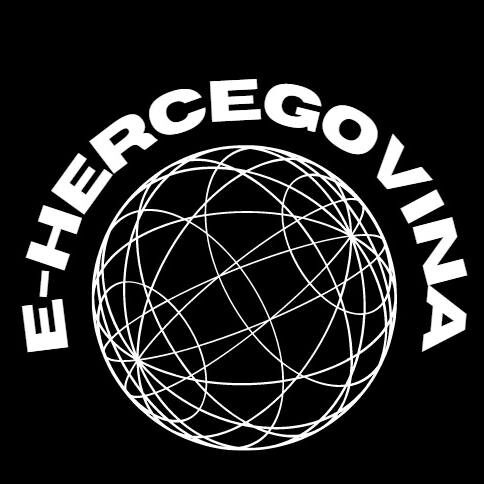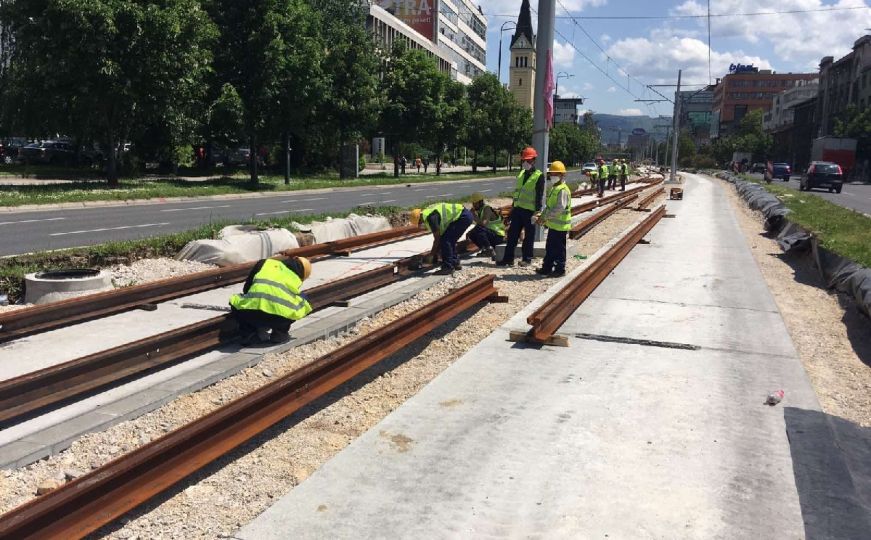
SARAJEVO’S DECEPTIONS AND SECRETS: “Cheap”Chinese tramway track “hijacked” from GRAS?
No one has seen the contract with the Chinese contractor, and the reasons for creating annexes to the contract are unknown. It is unclear who decided that the tramway track should be registered to the Ministry. It is unclear who issued the use permit, if at all. It is known, however, that the Chinese contractor insisted that everything be treated as “business secret and confidential information“
Author: Rubina ČENGIĆ
The reconstruction of the tramway track through Sarajevo, spanning from Čengić Vila to Ilidža, is shrouded in secrecy.
Secrets have been piling up since the project’s inception. Firstly, little is known about the contract with the Chinese company, purportedly due to the contractor’s insistence on confidentiality. The public remains unaware of the guarantees provided to the investor or contractor, as well as the potential implications for public assets and the country’s finances.
Moreover, there has been no public disclosure regarding the actual cost of the reconstruction.
Ultimately, very little, almost nothing, is known about the tramway track becoming the property of the Ministry of Transport in the Government of Canton Sarajevo, as it was registered under the Ministry’s ownership overnight!
Who owns the tramway track?
The city transportation provider GRAS doesn’t know much about the ownership.
– GRAS owned the old railway track, and I’m uncertain whether the process to transfer the track to the Ministry has been completed before the court. Right now, I don’t have time to deal with that matter as well – said director of GRAS Senad Mujagić.
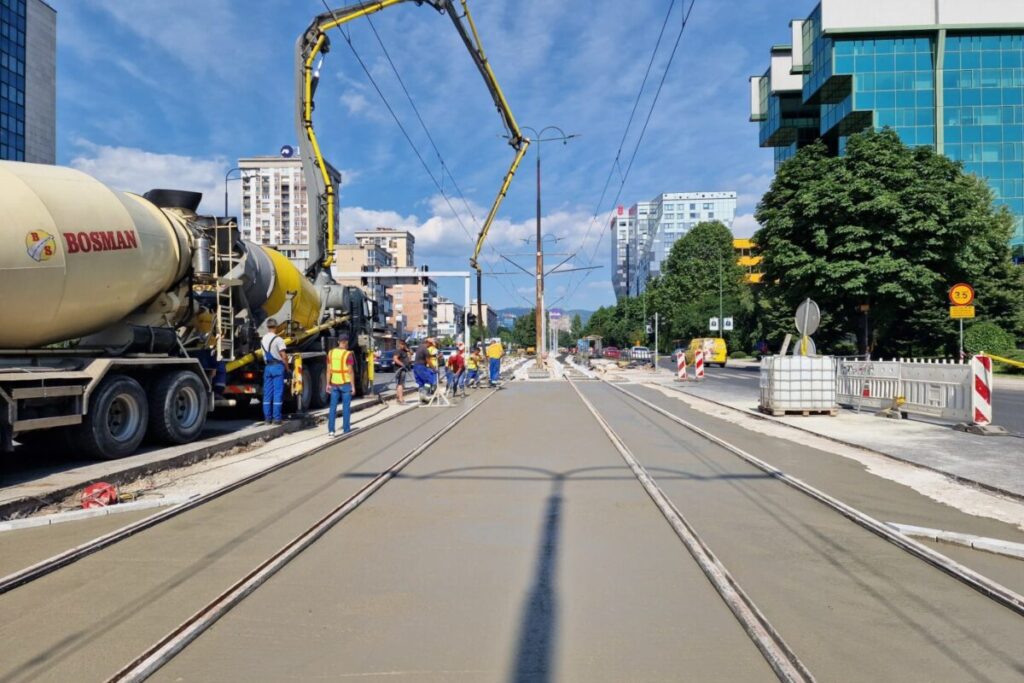
The Municipality of Novo Sarajevo states that the use permit was issued to the Ministry.
– The Service for Spatial Planning and Urbanism had on November 10, 2023 issued a use permit to the Ministry of Transport of Canton Sarajevo, as the investor, for reconstruction and rehabilitation of the tramway track in the Municipality of Novo Sarajevo. The permit covers LOT 2, stretching from the Otoka intersection to Čengić Vila, and part of LOT 3, extending from Čengić Vila to the intersection near the Museum and Technical School. It was determined that this section of the tramway track is technically safe and can be used – reads the response of the Municipality of Novo Sarajevo.
As of the completion of this text, we have not received any responses from the Municipalities of Novi Grad and Ilidža, through which this tramway track also passes, regarding whether they have issued use permits for the track and to whom.
The Ministry of Public Services, Infrastructure, Spatial Planning, Construction, and Environmental Protection of Canton Sarajevo stated that they were not involved in issuing the decision.
– All documents – urban planning permit, reconstruction approval, as well as technical inspection and use permit—are within the jurisdiction of the municipality. The Ministry of Transport of Canton Sarajevo is the investor and the body that should have obtained these documents. The Ministry of Public Services, Infrastructure, Spatial Planning, Construction, and Environmental Protection of Canton Sarajevo is not authorized to issue the necessary decisions in this case. – said the press services of the Ministry.
Who should have issued the permit?
The Administration for Inspection Affairs of the Canton Sarajevo stated that they did not inspect the reconstructed part of the tramway track line either during the reconstruction process or upon its completion, as they are not a supervisory authority.
Some forensic construction experts argue that the use permit for the tramline, which is a cantonal project, should have been issued by the cantonal ministry. However, they refrain from elaborating further as they have not had the opportunity to review the contract.
It is noteworthy mentioning that the cantonal government in Sarajevo had planned to establish a new company due to the substantial debts of GRAS and numerous property mortgages. The decision to establish the Cantonal Public Utility Company Javni prijevoz (public transportation) Sarajevo d.o.o. received approval from the Legislative Office of the Cantonal Government, the Ministry of Justice and Administration, and the Ministry of Finance of the Canton. This proposal was forwarded to the Cantonal Assembly for further consideration and was included on the agenda for one session. However, like all other agenda items at that time, it was withdrawn for “technical reasons”.
As of the completion of this text, the Ministry of Transport in the Canton Sarajevo Government had not yet provided answers to several questions:– who is the owner of the tramline and who is responsible for any accidents on the tramline or repairs in case of a malfunction/damage; whom can GRAS, as tramline user, and the Ministry as investor, contact in case they observe any irregularities.
What is in the Law?
The answers to these questions can be found in the Law on Public Transportation of Passengers in Sarajevo Canton from 2022. According to this law, “the operator”, which refers to any legal entity registered in the court register for providing urban and suburban passenger transportation services, is mandated to have the necessary infrastructure within the Canton’s territory for high-quality transport, parking and vehicle maintenance. According to the law, tram infrastructure encompasses tram stops, tracks, and facilities that are part of the tramway track. This includes electric traction substations, the contact network with supports, and associated power cables…
The law further announced that “the minister shall adopt the Rulebook for the design, construction and maintenance of the tramway track in the Canton for the purpose of constructing and maintaining tram infrastructure”.
The law also stipulates that the owner of the traffic infrastructure designated for tram (as well as trolley traffic, cable cars, and inclined lifts) has the option to transfer the responsibility for maintaining this infrastructure to the public transportation operator.
Thus – the operator must have infrastructure, but the owner of the infrastructure can transfer the obligation of maintenance to the operator….Seems a bit illogic, but the members of the Canton Sarajevo Assembly actually “do not recall details of the law and refrain from any commenting”.
No contract or an explanation
The Ministry of Transport did not respond to fundamental questions: how much did the construction ultimately cost, how many annexes were made to the original contract and for what purposes (i.e., reasons for the annexes), and what guarantees or collateral secure loan repayment? Additionally, why is the contract not public, and what rights does the contractor have if payments are delayed for any reason?
The architect Faruk Kapidžić, member of the Canton Sarajevo Assembly and serves on the Assembly Commission for Spatial Planning, Housing-Communal Policy, Infrastructure, and Environmental Protection, publicly raised concerns that the tramway track was constructed with technical errors.
– I’m not entirely certain, but I do know for sure that some aspects are not sustainable. The old tramway track lasted 30-40 years, and based on what I’ve observed, I’m unsure if this new one will endure for long. There are technical details that are unclear to me; perhaps there are explanations for them. However, from a professional standpoint, it is very wrong to use liquid concrete in the outer panel because of conditions like frost, water, and snow. When liquid concrete is applied quickly, it tends to fail as it starts to crack and collapse – said Kapidžić for source.ba two years ago.
He said earlier in the Assembly of the Canton Sarajevo that the cost of reconstructing the tramway track, initially contracted for around BAM 40 million or 20 million Euro, funded by an EBRD loan, might have escalated to approximately BAM 75 million due to the increased amount of gravel used instead of soil.
– The actual price remains unknown because the contract is confidential. The discrepancy could have been around BAM 5 million, but certainly not as much as BAM 35 million – said Kapidžić.
An investigation has been launched?
As a reminder, the Ministry’s decision “not to disclose the contract with the contractors, namely the Chinese companies China Shandong International Economic & Technical Cooperation Group Ltd. and China Railway No.10 Engineering Group, citing contractors’ economic interests”, prompted Transparency International to file a lawsuit against the Ministry for violating the Law on Freedom of Access to Information.
Simultaneously, unofficial reports indicate that the Prosecutor’s Office of Canton Sarajevo has initiated an investigation into the costs of tramway tracks’ construction and the quality of the works.
This is not the first contract in BiH where, despite being financed with public funds, the details remain secret from the public. This secrecy is reportedly at the behest of Chinese companies involved in the project, particularly when Chinese banks are creditors for the undertaking.
What does the public do (not) know?
For illustration, as of the end of March this year, the Ministry of Foreign Affairs of Croatia published information (https://mvep.gov.hr/print.aspx?id=272124&url=print) indicating that the Chinese have invested over three billion US dollars in loans to Bosnia and Herzegovina by 2023.
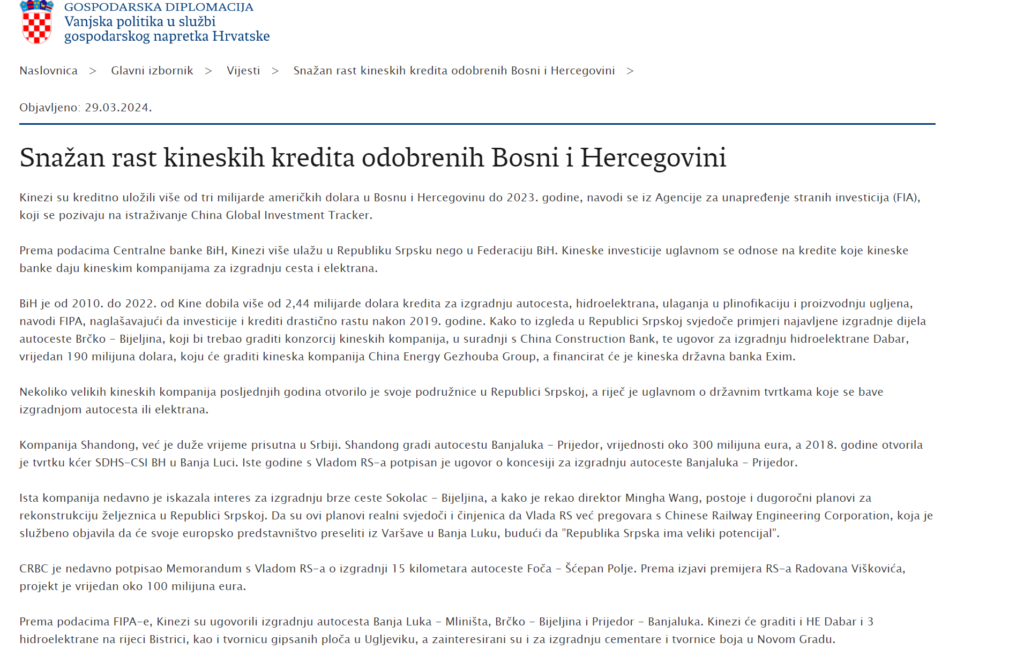
This information was also released by the Foreign Investment Promotion Agency (FIPA), referring to research from the China Global Investment Tracker.
It was highlighted that the company Shandong, which has had a longstanding presence in Serbia, is currently constructing the Banja Luka – Prijedor highway, valued at around 300 million Euro. Additionally, in 2018, Shandong opened a subsidiary company, SDHS-CSI BH, in Banja Luka.
Highways, reconstruction of railways
A concession contract was signed between the Government of the Republika Srpska and the company for the construction of the Banja Luka – Prijedor highway in the same year.
Recently, the same company has shown interest in the construction of the Sokolac – Bijeljina expressway. Director Mingha Wang also mentioned long-term plans for railway reconstruction in the Republika Srpska.
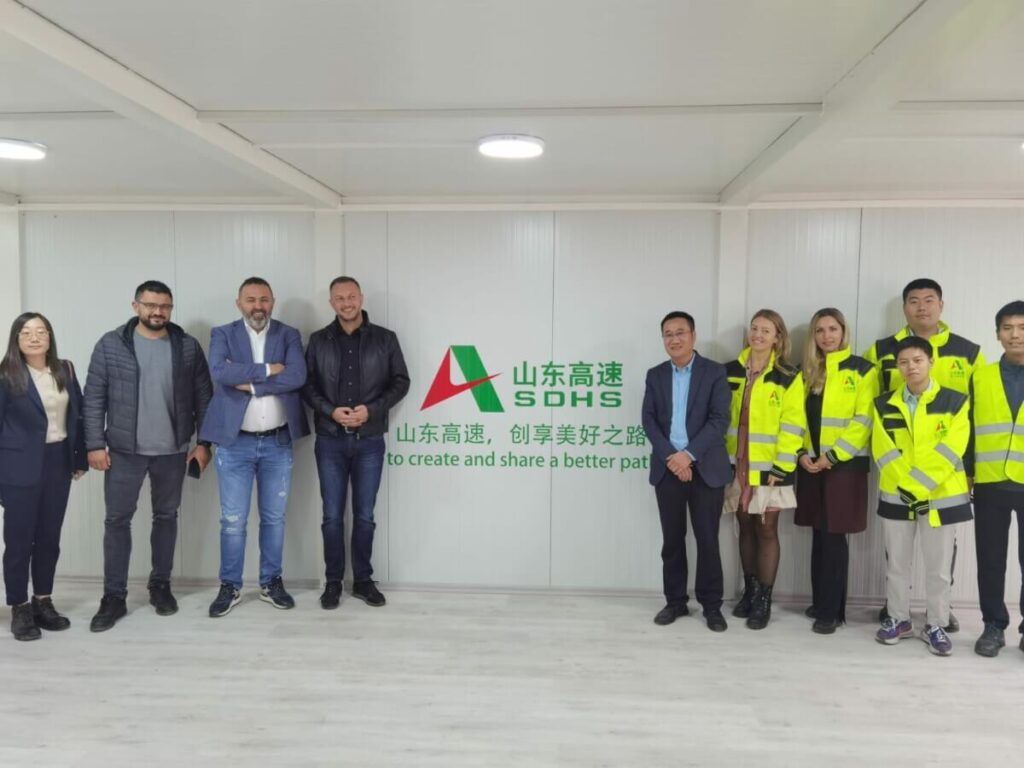
These plans are substantiated by ongoing negotiations between the RS Government and the Chinese Railway Engineering Corporation (CREC). CREC has formally announced its intention to relocate its European representative office from Warsaw to Banja Luka, citing significant potential in Republika Srpska. Recently, CREC signed a Memorandum with the RS Government for the construction of 15 kilometers of the Foča – Šćepan Polje highway.
According to RS Prime Minister Radovan Višković, the project is estimated to cost around 100 million Euro.
The issue with the secrecy surrounding these contracts is that the public remains unaware of the guarantees provided to the investor or contractor, as well as the potential consequences for public assets and finances in the borrowing country.
Portal Valter also reported about this, emphasizing the lack of transparency surrounding contracts involving Chinese investments.
Political scientist and dean at the Faculty of Political Sciences in Sarajevo, Sead Turčalo, said for interview.ba that the government should not prioritize the costs of works over public interest of citizens.
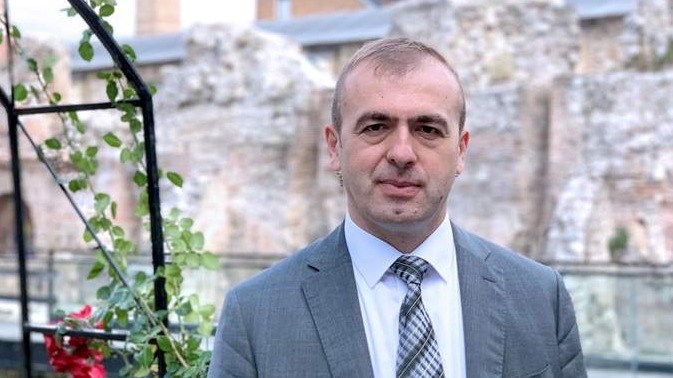
– Chinese companies are increasingly influential in infrastructure projects across Bosnia and Herzegovina. However, their involvement frequently comes with issues of transparency and accountability. Projects like the Stanari Thermal Power Plant and the Bileća Hydro Power Plant highlight recurring challenges such as non-transparent contracts and limited disclosure of financial arrangements. This lack of openness fosters conditions that are susceptible to corruption and misuse, leaving the public uninformed about crucial details concerning public resources and budget – said Turčalo.
He emphasizes that the role of the Chinese company in the reconstruction of the tram line in Sarajevo highlights several key problems.
– The non-transparency of contracts severely erodes public trust. Keeping contracts confidential, coupled with inadequate disclosure of costs and terms, creates grounds for suspicion regarding potential irregularities. Additionally, cost escalations resulting from unforeseen factors like global instability and increasing material prices highlight shortcomings in project planning and management. The Chinese company seemingly exercised its right to adjust prices, further burdening the investor—in this case, the Ministry of Transport of Canton Sarajevo—and potentially placing an additional strain on the citizens’ budget – concluded Turčalo.
Sarajevo’s mess
When it comes to the Sarajevo tramway track, Bosnia and Herzegovina entered into a loan agreement with the European Bank for Reconstruction and Development (EBRD) on February 5, 2020, to finance the execution of this project.
The borrower is BiH with the support of FBiH, the Canton, and the Ministry of Transport as investors. The amount of the approved loan is up to 20 million Euro. The loan subcontract for the Public Urban Transport Modernization Project between the FBiH and the Canton was concluded on December 8, 2020. The loan is repaid by the Canton according to FBiH with a repayment term of 15 years and a grace period of three years (included in the loan repayment term). The interest rate is six-month EURIBOR plus a margin of 1% per year, a one-time commission is 1% on the principal amount and a commission on the undrawn amount of the loan is 0.5% per year. The loan was declared effective on January 31, 2020. According to EBRD procedures, the Canton conducted the public procurement procedure through an open single-phase tender, which was later extended by 14 days. Tender documents were taken over by 111 bidders, and bids were submitted by six companies: China Shandong International Economic & Technical Cooperation Group, Ltd. (23.906.356 EUR), China Civil Engineering Construction Corporation (31.227.675 EUR), YM – YAPIRAY Joint Venture (32.580.611 EUR), JV Euro-Asfalt d.o.o. & DUHA a.s. (31.473.674 EUR), JVCA: Strabag AG & Strabag d.o.o. Sarajevo & STRABAG Sp.zo.o. (37.804.087 EUR), and Gülermak Ar Sanayi nşaat ve Taahhüt A.Ş. (33.659.407 EUR).
Criterion was lowest price
The criterion for selecting the most favorable supplier was the lowest price, and after evaluating the bids, China Shandong International Economic & Technical Cooperation Group, Ltd. was selected.
According to the report of the Office for the Audit of Institutions in the FBiH, the documentation for this investment “consists of a contract as a single document without additions, explanation of the offer, offer acceptance letter, offer letter, addendum to offer, special terms of the contract, general terms of the contract, specifications, designs, estimate of works and additional information of the contractor”.
The auditors also noted that “three changes to the contract were signed during the execution of the works”, but do not specify the price or type of works.
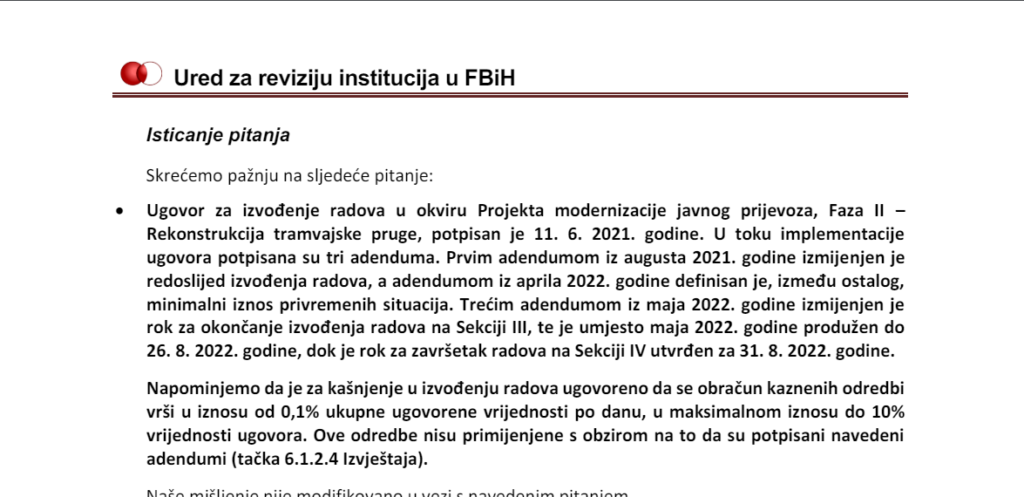
Transparency, then everything else
Prof. Turčalo warns that authorities must prioritize transparency and accountability towards citizens above all else.
– Although opting for cheaper contracts may seem attractive, experience has shown that such decisions often result in additional costs, lack of transparency, and risks to the quality of work performed. Transparency and accountability are crucial for maintaining public trust and preventing corruption, which are consistently highlighted as priorities. Governments should insist on clear and publicly accessible contracts, ensuring that all terms are disclosed to interested citizens. This approach helps uphold contractor accountability and safeguards the public interest-said Turčalo
The director of the Chinese company Shandong International Economic & Technical Cooperation Group Ltd. (CSI), Liu Rucheng, stated to the Raport portal in May 2022 that the cost of the works would exceed the contracted price. He attributed this to the significant rise in international turmoil affecting the prices of labor and goods. According to the agreed conditions, the contractor retains the right to apply a price correction.
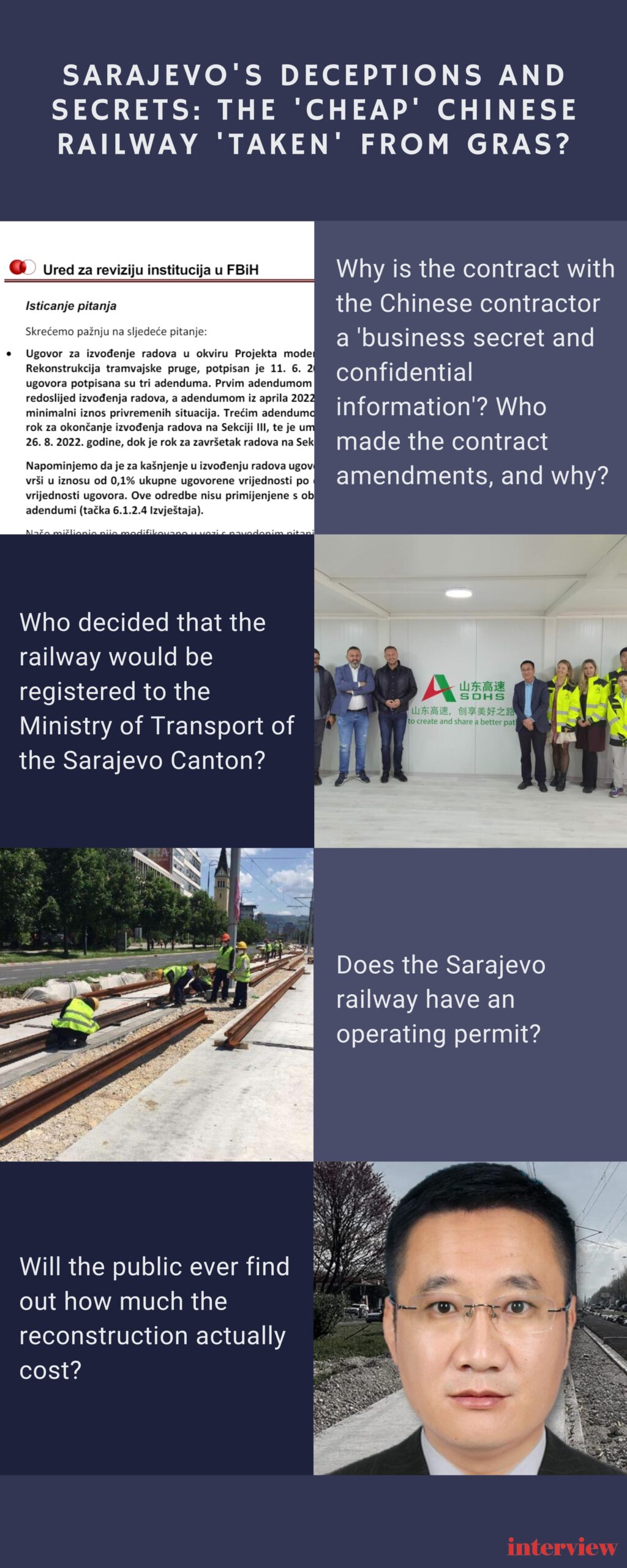
He explained that the investor should not disclose the contract with them because he believes that “the previous information provided to the interested media by the Cantonal Ministry of Transport is sufficient to oblige the citizens and the public because it contains all the required information, and that the data in the Bill of quantities, which are an integral part of the signed contracts, are business secrets and confidential information of the Contractor. Their publication to the public could potentially disadvantage the Contractor compared to competitors”.
Debts and a new company
According to statements previously made by representatives of the Ministry of Transport in the Canton Sarajevo Government to the media “the fact that the loan agreement was signed with the EBRD should be sufficient for the public to have confidence in this project”.
According to the audit report, the Ministry conducted a public procurement procedure in 2020in line with EBRD procedures through an open single-phase tender (without pre-qualification) for the implementation of the Tramway track Reconstruction Project. The tender notice was published on January 29, 2020. Subsequently, on June 23, 2020 the Ministry of Transport issued an invitation to tender after receiving a no-objection (certificate of correctness) from the Bank regarding the draft Tender documentation. (Report on the audit of the Canton Sarajevo for the year 2021).
The post SARAJEVO’S DECEPTIONS AND SECRETS: “Cheap”Chinese tramway track “hijacked” from GRAS? appeared first on Interview.ba.
